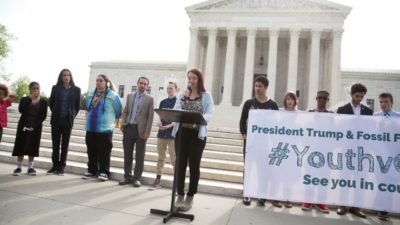Climate Change
Uncertainty in the Age of Coronavirus
There’s a lot we don’t know at this point. How should we deal with that?
Knowledge about the coronavirus is limited but growing. In the meantime, how should we cope with this uncertainty? I can’t give you psychological advice, but I can say something about how to think about this uncertainty. How to make decisions under uncertainty is something we know a lot about from the environmental sphere. Uncertainty is …
Continue reading “Uncertainty in the Age of Coronavirus”
CONTINUE READINGGlobal Crisis and the Urgency of Phasing Out Oil and Gas Production
Considering long-term climate needs in near-term crisis responses
As the covid-19 crisis threatens a global recession and sharply cuts travel demand, compounding the damage caused by the oil price war between Saudi Arabia and Russia, US and international oil prices are hitting historic lows, driving turmoil throughout the industry and threatening a rash of bankruptcies, stranded projects, and job losses. These recent developments …
Continue reading “Global Crisis and the Urgency of Phasing Out Oil and Gas Production”
CONTINUE READINGHeathrow’s Third Runway and Airport GHG Emissions
California’s potential opportunity to lead through local action
Late last month, a UK court blocked a proposed new runway at London’s Heathrow Airport, ruling that the project conflicted with the national government’s commitment under the 2015 Paris Agreement. The court held that project planners improperly failed to assess the proposal’s consistency with the UK government’s ratified plan to help meet the Paris target …
Continue reading “Heathrow’s Third Runway and Airport GHG Emissions”
CONTINUE READINGValentine’s Day and Climate Change
Global warming will change much of our everyday lives. Even Feb. 14.
How is climate change connected with Valentine’s Day? In many ways, as it turns out. That’s an indication of the myriad ways in which climate is entangled with our lives. Whether it’s roses and chocolate, or courtship, nothing will remain quite the same as global temperatures go up and up. What about climate change and …
Continue reading “Valentine’s Day and Climate Change”
CONTINUE READINGBold But Realistic Climate Actions
Here’s what a new President could actually do.
What options are available to a new President taking office in 2021? Let’s assume a favorable scenario for climate action in which Dems take unified control of the government (White House, Senate, House) in 2021. What then? The first theme to keep in mind is that the Democrats will still be subject to some significant …
Continue reading “Bold But Realistic Climate Actions”
CONTINUE READINGCan the Center Hold?
The Challenge to Mainstream Environmentalism
Is environmentalism facing a paradigm shift? Since the 1970s, mainstream environmentalists, lawyers, and scholars have sought incremental progress based on established law and political realities. But frustration with that approach is palpable. The face of climate advocacy is now seventeen-year-old activist Greta Thunberg rather than Establishment politician Al Gore. And there is growing frustration with …
Continue reading “Can the Center Hold?”
CONTINUE READINGDeciding a Climate Case in the Shadow of the Supreme Court
Juliana Judges Surely Had The Higher Court in Mind in Drafting Their Decision
The irony of the Ninth Circuit decision dismissing the Juliana v. United States case this week is plain to see. Two branches of government — the legislative and executive – have failed to act to address an environmental problem that may cause the destruction of the federal government itself. The third branch, the judiciary, recognizes the …
Continue reading “Deciding a Climate Case in the Shadow of the Supreme Court”
CONTINUE READINGLooking Ahead: Inauguration Day, 2021.
There are 3 plausible scenarios for the new balance of power.
Inauguration day is a year from today. What will the balance of power be then? The House doesn’t seem to be in play. Democrats have an uphill fight to win the Senate, so a GOP White House would probably mean a GOP Senate. That leaves three likely scenarios, with different implications for environmental law. Scenario …
Continue reading “Looking Ahead: Inauguration Day, 2021.”
CONTINUE READINGJuliana and the Future of Climate Litigation
Asking judges to pass judgment on all U.S. energy policy was a bridge too far.
The Ninth Circuit threw out the Juliana litigation this morning. The two judges in the majority basically said, legalistic language, that you can’t get the Green New Deal by court order. It was wrong for the Supreme Court to step in at the last minute to put the trial on hold, rather than giving the …
Continue reading “Juliana and the Future of Climate Litigation”
CONTINUE READINGA Paper Tiger?
Trump is proposing big changes to CEQ regs. But they may not matter.
The Trump Administration is trying to gut the current White House rules on environmental impact statements. Some people view this move as a death blow to an important environmental tool. Here’s what Trump is trying to do and why it may not matter as much as people fear. As to what Trump & Co. are …
Continue reading “A Paper Tiger?”
CONTINUE READING










